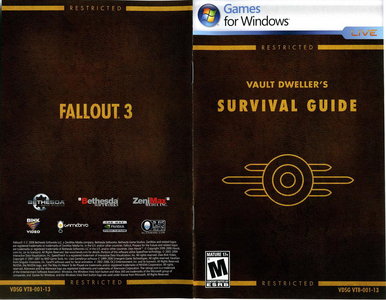@darthgumballs said:
@Chozofication said:
@finalstar2007 said:
First of all they cost them a lot of money to make and print and second of all seriously who actually reads them? i mean small percentage of people do the rest dont even notice them so its cheaper and easier to make a digital manual rather than physical ones.
It costs them to make the disc too, should they take that out next? Heh, I can see it now, there'd be nothing in the disc holder and instead there'd be a download code..
Yes, there is hardly any reason to even have discs anymore. Sure internet isn't great everywhere, but I think they should completely abandon physical copies of games. Microsoft had it right with their original Xbox One gameplan. Not only would there be less waste, but think of all the money saved from transporting physical copies, storing them, etc. Just go all digital. No one buys physical copies of PC games for Steam do they? Console gaming should go the same way.
Digital distribution is a complete non-starter for a lot of parts of the world. Don't assume that because you can easily download any game you want that the same applies for the rest of the population of the planet. In India alone (you know, that country that makes up almost 1/5th of the population of the entire planet?), it's common for internet providers to charge based on usage so downloading a 20GB game might could actually cost significantly more than purchasing a physical copy. Also, some poeple don't like the idea of owning a "license" to play a game rather than owning the game itself, as it the perception with digital distribution services like Steam or Origin.
For me, I like playing complex games. Games like NWN2 that had a thick physical manaul explaining all the perks, feats, and stats from the D&D 3rd edition system. Physical manuals and in-game tutorials are not mutually exclusive. There's no reason why you can't include both. That said, for your average FPS or arcade-y console game a physical manual is probably overkill because you could explain all of the gameplay concepts in a single page.
I'm an old-school gamer, so I remember the days that Mirko is talking about with cloth maps and "feelies" included in the boxes that really made the game even more interesting. The old text based Infocom games actually included feelies that you needed to beat the game (not copy protection, exactly, but more like props). Some of the clues in the detective games were actually physical objects included in the box that would be referenced in the game. You'd examine the physical object that you actually had in your hand and figure out what to do next (or not, as was the case often with this incredibly difficult games) based on real-world observations. This was a really creative solution to make your games more immersive, especially back because games had graphics.
-Byshop


Log in to comment